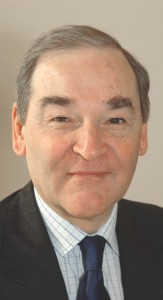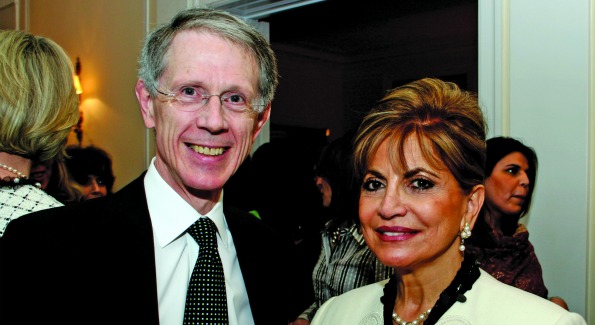Two seasoned British envoys reflect on the course of U.S.-U.K. diplomacy.
Earlier this year the British House of Commons released the transcript of a special inquiry on the U.S.-U.K. “special relationship” conducted by parliament’s Foreign Affairs Committee. Among the diplomats, government officials, and specialists testifying were Sir David Manning, lately British ambassador in Washington; and Sir Jeremy Greenstock, a former ambassador to the United Nations,. Here, in their own words, is a sampling of their insights.
Sir David Manning: Basically, the Americans don’t do self-deprecation, so you better get up there, make your case, and say why it’s a good one. I always felt that the Embassy (in Washington) was itself a lobby group.
… There is a lot of competition from within America itself, as well as certainly from other countries. Having access to the Hill, having access to the White House, and having access to the media to make sure that you can get your message across to the whole United States through a network are all very important.
It will not get any easier, particularly when the regime has changed in the United States.
 Sir Jeremy Greenstock: The United States tends to walk around with quite heavy boots, and there are some sensitive flowers in the United Nations. The United Kingdom is a lot better at the tactical handling of other (U.N.) delegations and of language in drafting texts and tactical maneuvering.
Sir Jeremy Greenstock: The United States tends to walk around with quite heavy boots, and there are some sensitive flowers in the United Nations. The United Kingdom is a lot better at the tactical handling of other (U.N.) delegations and of language in drafting texts and tactical maneuvering.
We just happen to be tidier, more experienced, and better at it.
Manning: One of the things that the Embassy (in Washington) has to do all the way through is to try to assess who’s up, who’s down, and where the argument is actually going. I don’t look back thinking that there was a tremendous [U.S.] campaign to deceive us. … I think it was much more a question, a lot of the time, of the Administration finding it quite hard to come to a conclusion themselves, because there is such a cacophony of voices.
Even if the Administration do come to a conclusion … that doesn’t mean to say that the Hill will follow.
Greenstock: Being a superpower is quite a lonely business – the Americans don’t have many friends out there; they talk among themselves and, in fact, American decisions on hard issues are always finally made among Americans. … Outsiders, even outsiders in Washington, are not involved in it – it is an American business.
Manning: We have a certain weight in the [U.S.] system. We should not exaggerate, nor should we underestimate it.
We should decide what it is that we want to try and do, and then become part of the debate. … If we have a network, we should try to use it to that end.
Greenstock: We had this fight with [the Americans] over their policy on Bosnia – a bitter division. In the end the Americans decided that, actually, their policy was not going to produce peace in the Balkans and that the Europeans actually had a … possible solution to the Balkans crisis. … So suddenly, in August 1995, they came over to London first and said that they were going to take over aspects of our policy – but they were going to implement it themselves.
Manning: I suspect that you have [in Barack Obama] a President who, first of all, is new to foreign relations, and it is important for us to understand that his background is completely different from that of his predecessors. He is a very quick study … but he does not come with knowledge of Europe and Britain that his predecessors would have had. … The President also comes with a very different perspective. He is an American who grew up in Hawaii, whose foreign experience was of Indonesia and who had a Kenyan grandfather. The sentimental reflexes, if you like, are not there.

